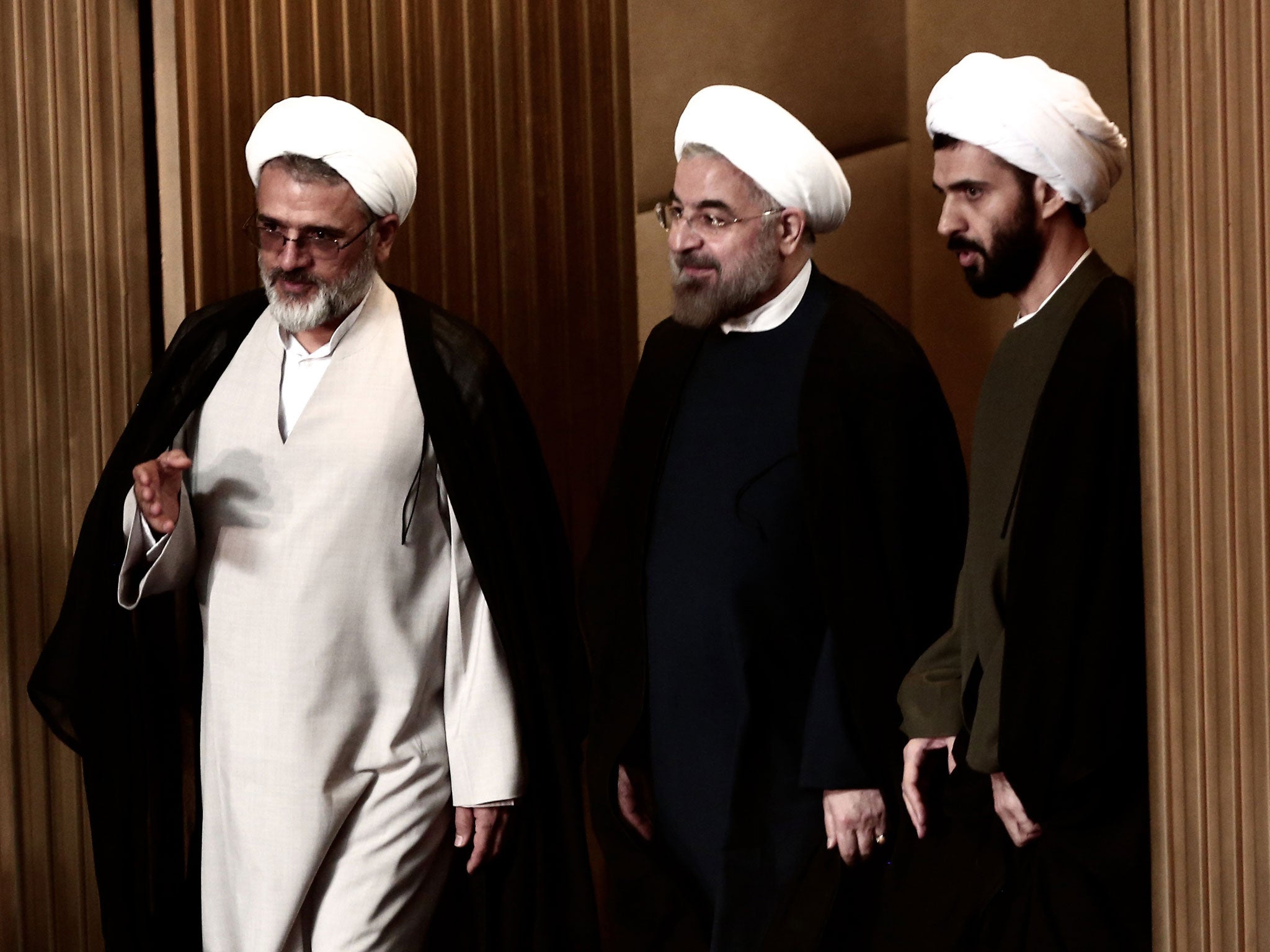Rouhani: The new friendly face of Iran - or is he?
By launching a charm offensive with the West and exchanging letters with Barack Obama over Syria, new president Hassan Rouhani speaks to his own people too

Ayatollah Ali Khamenei has been busy on Twitter lately. The Iranian Supreme Leader has taken to social media to tick off America for its hypocrisy and double standards in the Middle East. But he has other things on his mind too. Come on women, he tweeted in some good-humoured musings on marriage last weekend, don’t give your husbands such a hard time for spending too long at the office. And, if you haven’t read Victor Hugo’s Les Miserables, you should, he said. It is a “miracle” among novels, “a divine book, a book of kindness, love and #affection”.
The trouble with trying to decode the Iranian regime is that it’s a bit like trying to judge a person you’ve never met by their tweets or the hilarious images they post on Facebook. You’re never really getting the full picture. Engagement is limited to what they want you to hear.
Iran’s leaders have long been the masters of mixed messages, partly because the tactic confounds their critics but also because there is more than one centre of power in Tehran. All kinds of internal tensions are at play. The country’s president does not have all the power (the mistake so often made in the West about Mahmoud Ahmadinejad and his theatrics was to assume he was an autocrat).
So when we hear (via Twitter of course) that America and Iran may be speaking or at least writing to each other again, and that the first real spell of détente since 1979 is on the cards, we should be excited. But we should also not assume we know where this will end.
Hassan Rouhani, the newly elected Iranian president, has certainly transformed the mood music. He went from dark horse to runaway victor in June elections after promising to roll back internet censorship and relax many of the petty strictures which make life difficult in Iran. But his boldest move was to attack the domestic consensus on the nuclear issue. The standoff with the West was being mishandled, he said. If elected, he would seek not to entrench Iran’s isolation but to do a deal, which would in turn get sanctions lifted.
Most ordinary Iranians are mightily sick of the anti-Western verbiage that has been the soundtrack to their lives for more than 30 years. But they are also sick of juggling two jobs to pay for food and of seeing family members die in hospital wards starved of vital cancer medicines by savage sanctions. By launching a charm offensive with the West and exchanging letters with Barack Obama over Syria – a contact which may produce the extraordinary outcome of the first bilateral talks between Iranian and American leaders since before the Islamic revolution – Rouhani speaks to his own people too.
An urbane and sophisticated man who has travelled (he studied for a time in Britain), Rouhani has surrounded himself with media-savvy figures who are at ease with the grammar of international diplomacy. His Minister for Foreign Affairs, Javad Zarif, is US-educated, another keen tweeter in English and an enthusiastic user of Facebook (ironic given that most Iranians have no access to social media). Together they have used the Syria crisis to present Iran as less of a threat than a respected and crucial power in the region.
The German media reported on Monday that Rouhani’s intention, having buttered up his Western interlocutors, will be to offer to decommission the most-feared nuclear plant in Iran, an underground facility in the mountainous territory near the holy city of Qom, capable of withstanding bunker-busting bombs, in exchange for the lifting of a ban on Iranian oil exports. That would be, as Der Spiegel noted, sensational.
But two things are troubling. The first is how carefully Rouhani will have to navigate within Iran if he is not to fall foul of the Supreme Leader and his allies in the Revolutionary Guard. The second question to ask is, will any of this have a bearing on political freedom or human rights within Iran, the things that could really disarm Iran’s hardliners?
Iran Inc. is in the mood for negotiations, but Khamenei wants them to be conducted from a position of strength and will never surrender the country’s right to enrich uranium. Whatever meetings take place in whatever gilded Geneva meeting rooms or in the corridors of the UN in New York, the most dyed-in-the-wool Iranian conservatives will continue to fear that America’s real agenda is regime change.
Already there are signs of internal tensions. It was deemed significant that Rouhani failed to show up recently to a big regime funeral attended by most of the elite. If they suspect Rouhani’s pragmatism is threatening their power and financial interests, which depend on the survival of the current set-up, they won’t be long in reining him in. That’s when we will start seeing more of those mixed signals.
The second worry? One possible outcome is that by striking a nuclear/sanctions deal Rouhani could actually solidify the regime. How? By taking the heat off the internal pressure cooker of suppressed dissent and conferring renewed legitimacy on the clerics. It is perfectly possible that the new president, although he is clearly what we like to call “a moderate”, desires such an outcome.
But neither he nor the Ayatollah can have excluded from their calculations the risk that once they open things up, loosen travel restrictions – in both directions – ease censorship, start talks with the Americans and come in from the cold, anything, as we know from the plotlines of the best novels, can happen.
Join our commenting forum
Join thought-provoking conversations, follow other Independent readers and see their replies
Comments